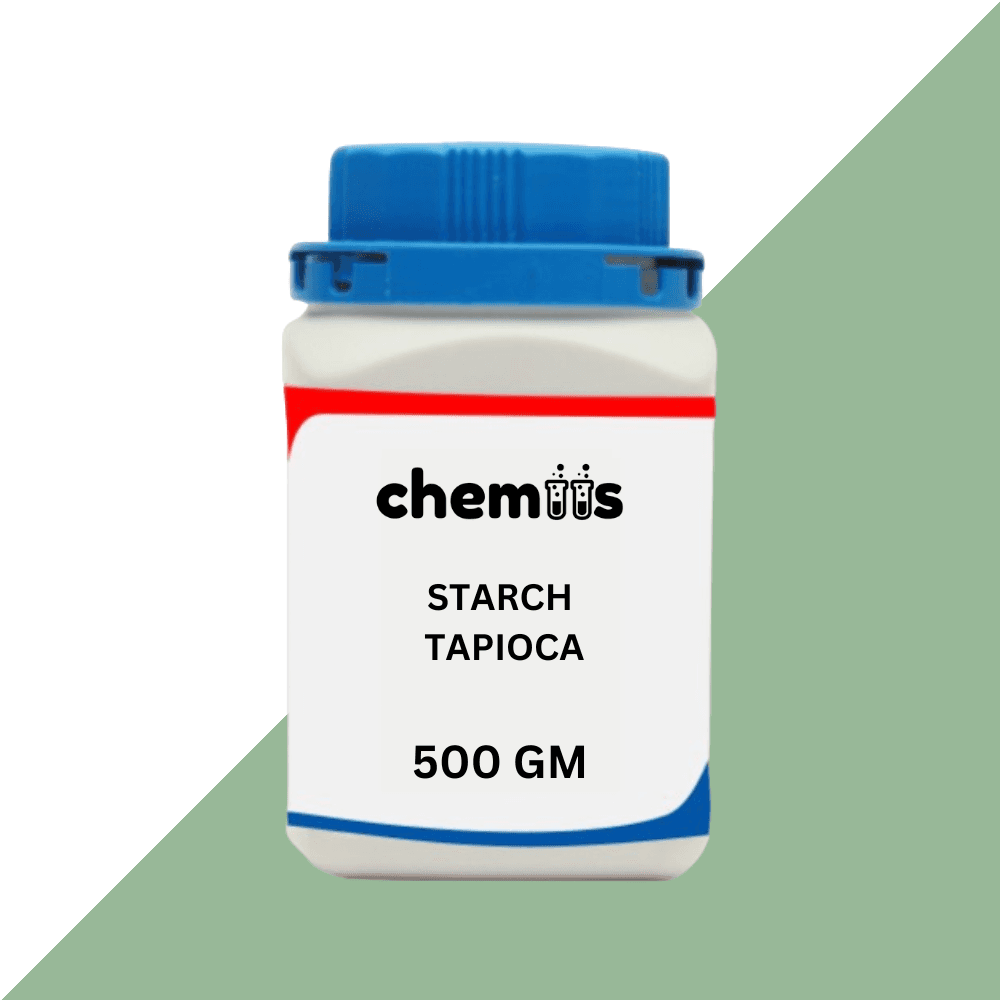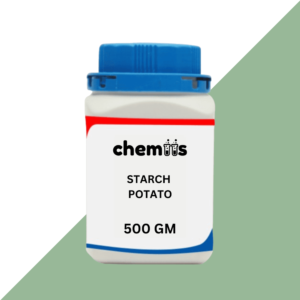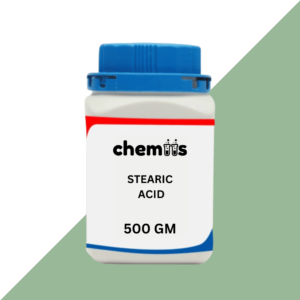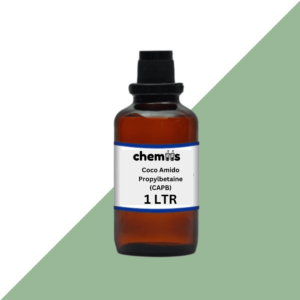Tapioca Starch is a natural starch extracted from the root of the cassava plant (Manihot esculenta). Known for its high purity and versatile properties, it is used extensively in food, pharmaceutical, and industrial applications. Tapioca starch is prized for its neutral flavor, excellent binding capabilities, and smooth texture when hydrated. It is a gluten-free alternative to other starches and is often used in gluten-free baking and as a thickening agent for sauces, soups, and gravies. It is also used in textiles, cosmetics, and biodegradable plastics.
Applications:
1. Food Industry:
- Thickening Agent: Tapioca starch is widely used as a thickening agent in soups, sauces, gravies, and salad dressings. It imparts a smooth texture and a clear finish when heated, making it a preferred choice for clear liquids.
- Gluten-Free Baking: It is a key ingredient in gluten-free baked goods such as cakes, muffins, and cookies. Tapioca starch provides structure, moisture retention, and a soft, elastic texture, making it essential for those with gluten sensitivities or celiac disease.
- Confectionery: Tapioca starch is used in the production of sweets and jellies, including marshmallows and gummy candies. It helps provide the desired chewy texture while preventing crystallization of sugars.
- Dairy Products: It is often used in puddings, ice creams, and custards as a stabilizer and thickener, helping improve consistency and texture while maintaining the creamy feel.
2. Pharmaceutical Industry:
- Tablet Binder and Disintegrant: Tapioca starch is commonly used in pharmaceutical tablet formulations as a binder and disintegrant. It helps bind the ingredients together and ensures that the tablet disintegrates effectively after ingestion.
- Suspension Formulations: In liquid pharmaceuticals, tapioca starch helps stabilize suspensions and syrups, ensuring the even distribution of active ingredients.
- Wound Care Products: Tapioca starch is used in certain wound dressings and medical products for its ability to absorb moisture, creating a dry environment that aids in faster healing.
3. Cosmetic and Personal Care:
- Skin Care: In cosmetics, tapioca starch is used as a thickening agent in lotions, creams, and shampoos. It helps improve the texture of products, making them easier to apply and providing a silky feel without greasiness.
- Makeup: Tapioca starch is found in face powders and foundations, where it helps absorb excess oil from the skin and provides a matte finish, making it suitable for oily skin types.
- Hair Care: Tapioca starch is a popular ingredient in dry shampoos and other hair care products due to its ability to absorb oil and provide volume and texture to hair without the need for washing.
4. Industrial Applications:
- Textile Industry: Tapioca starch is used in textile finishing, particularly in sizing applications. It strengthens fabrics and adds smoothness, improving their workability during weaving and other textile processes.
- Biodegradable Plastics: With a growing emphasis on eco-friendly products, tapioca starch is used in the production of biodegradable plastics, offering an alternative to petroleum-based plastics.
- Paper Industry: In the paper and packaging industry, tapioca starch is used as a binder and adhesive, providing strength to paper products and improving their durability.
5. Animal Feed:
- Feed Binder: Tapioca starch is used as a binding agent in animal feed formulations, improving pellet integrity and ensuring a uniform distribution of nutrients.
Safety Guidelines:
- Personal Protective Equipment (PPE):
- Skin Protection: Tapioca starch is generally safe for skin contact. However, prolonged exposure in industrial settings may cause mild irritation. It is advisable to wear gloves when handling large quantities of starch for extended periods.
- Eye Protection: Safety goggles or face shields should be worn to protect the eyes from dust, especially when handling large amounts of the powder.
- Respiratory Protection: When handling tapioca starch in powdered form, use a dust mask or respirator to avoid inhaling starch particles, which may cause irritation or discomfort in the respiratory system.
- Storage:
- Store tapioca starch in a cool, dry place, away from direct sunlight and moisture. The product should be kept in tightly sealed containers to prevent contamination and moisture absorption.
- Tapioca starch should not be stored near strong acids, alkalis, or oxidizing agents, as these may degrade the starch.
- First Aid:
- Inhalation: If excessive inhalation of starch dust occurs, move the affected person to fresh air immediately. If symptoms persist, seek medical attention.
- Skin Contact: In case of skin irritation, wash the affected area thoroughly with soap and water. If irritation continues, seek medical advice.
- Eye Contact: If the starch comes into contact with the eyes, rinse immediately with plenty of water for at least 15 minutes. Seek medical attention if irritation persists.
- Ingestion: Tapioca starch is considered safe for consumption in food applications. However, if large quantities are ingested accidentally, contact a healthcare provider for advice.
- Disposal:
- Dispose of tapioca starch according to local environmental regulations. Small amounts can generally be disposed of as regular waste, while larger amounts should be disposed of in a manner that prevents contamination of water sources.








Kusum Kumari (verified owner) –
Found what I was looking for.
Pooja Sinha (verified owner) –
Just what I needed.
Jyoti Sharma (verified owner) –
On-time and well-packed.
Abhay Saxena (verified owner) –
Good support for queries.
Simran Gill (verified owner) –
On-time and well-packed.
Uday Thakur (verified owner) –
Items exactly as ordered.
Jyoti Sharma (verified owner) –
Consistent quality.
Amarjeet Singh (verified owner) –
Will definitely order again.
Tanya Shetty (verified owner) –
Ordering was easy.
Rohan Gupta (verified owner) –
Delivered in good condition.